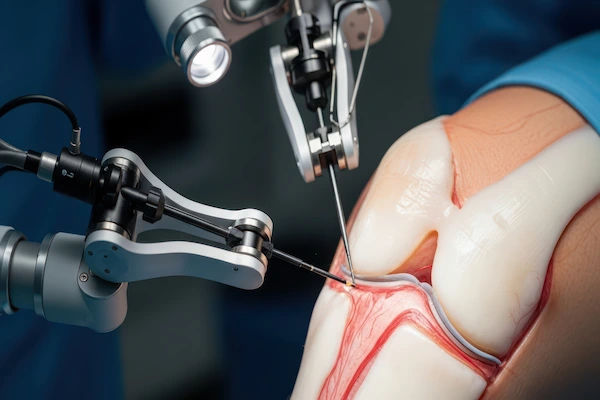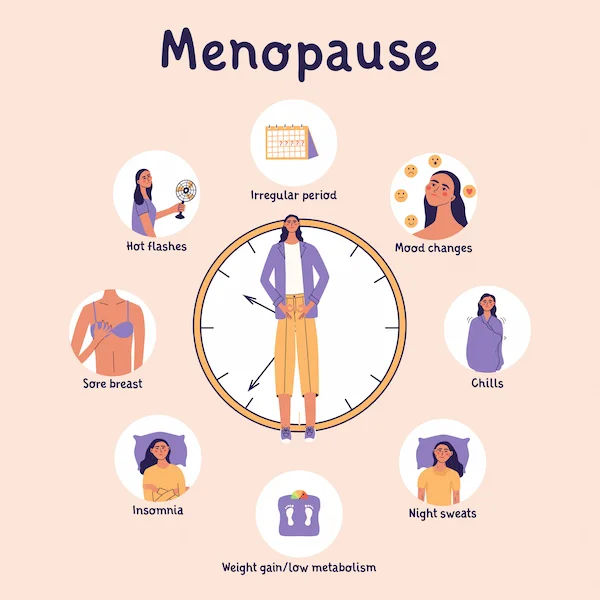Polycythemia Vera: Overview of Symptoms and Treatment
Explore polycythemia vera, its symptoms, causes, and treatment options. Learn how this blood disorder affects red blood cell production and ways to manage it effectively.

Written by Dr. J T Hema Pratima
Reviewed by Dr. D Bhanu Prakash MBBS, AFIH, Advanced certificate in critical care medicine, Fellowship in critical care medicine
Last updated on 13th Jan, 2026

Polycythemia Vera (PV) is a rare blood disorder that affects the bone marrow, leading to the overproduction of red blood cells. This condition can make your blood thicker than normal, increasing the risk of complications like blood clots, which may lead to serious health issues such as stroke or heart attack.
While PV is a chronic condition, it can be managed effectively with proper treatment and lifestyle changes. In this article, we’ll discuss the symptoms, causes, and treatment options for Polycythemia Vera in simple terms, so you can understand how to take care of your health.
What is Polycythemia Vera?
Polycythemia Vera is a type of myeloproliferative neoplasm (MPN), a group of disorders where the bone marrow produces too many blood cells. In PV, the body makes an excessive number of red blood cells, but sometimes white blood cells and platelets may also increase.
This condition develops slowly and is most common in adults over 60 years of age, though younger people can also be affected. Since PV makes the blood thicker, it can lead to circulation problems and increase the risk of blood clots.
Consult a Top Hematologist
Symptoms of Polycythemia Vera
Many people with PV may not notice symptoms in the early stages. However, as the condition progresses, the following signs may appear:
- Headaches and dizziness
- Itchy skin (especially after a warm shower or bath)
- Redness or a burning sensation in hands and feet (erythromelalgia)
- Fatigue and weakness
- Shortness of breath
- Blurred vision or ringing in the ears (tinnitus)
- Easy bruising or bleeding (nosebleeds, gum bleeding)
- Enlarged spleen (feeling full quickly or pain on the left side of the abdomen)
If you experience any of these symptoms persistently, it’s important to consult a doctor for further evaluation.
What Causes Polycythemia Vera?
PV is caused by a genetic mutation (change) in the JAK2 gene, which controls blood cell production. In most cases, this mutation is not inherited but occurs randomly during a person’s lifetime.
Risk Factors:
- Age (more common in people over 60)
- Gender (slightly more common in men)
- Family history (though rare, some cases may have a genetic link)
Unlike some other blood disorders, PV is not caused by lifestyle factors like diet or smoking, but these can worsen complications.
How is Polycythemia Vera Diagnosed?
If your doctor suspects PV, they may recommend the following tests:
1. Complete Blood Count (CBC) – Checks for high red blood cell levels.
2. Bone Marrow Biopsy – Examines bone marrow cells for abnormalities.
3. JAK2 Gene Test – Confirms the presence of the mutation.
4. Erythropoietin (EPO) Level Test – Measures the hormone that regulates red blood cell production (low in PV).
Early diagnosis helps in managing the condition effectively and preventing complications.
Get Your Health Assessed
Treatment Options for Polycythemia Vera
While there is no cure for PV, treatments focus on reducing symptoms and preventing complications like blood clots. Your doctor may suggest:
1. Phlebotomy (Blood Removal)
- A simple procedure where a small amount of blood is drawn to lower red blood cell count.
- Similar to donating blood, done regularly to maintain normal levels.
2. Medications
- Low-dose Aspirin – Helps prevent blood clots.
- Hydroxyurea or Interferon-alpha – Reduces excessive blood cell production.
- JAK2 Inhibitors (Ruxolitinib) – Used in severe cases to control symptoms.
3. Lifestyle Changes
- Stay Hydrated – Drinking plenty of water helps keep blood from thickening.
- Exercise Regularly – Improves blood circulation (but avoid overexertion).
- Avoid Smoking – Smoking increases clotting risks.
- Healthy Diet – Focus on iron-rich foods (if needed) but avoid excessive red meat.
4. Managing Itchiness
- Use mild soaps and moisturizers.
- Antihistamines may help reduce itching.
When to See a Doctor?
If you experience:
- Persistent fatigue, dizziness, or headaches
- Unexplained itching or redness in hands/feet
- Shortness of breath or chest pain
- Frequent nosebleeds or bruising
It’s important to consult a hematologist (blood specialist) for proper diagnosis and treatment.
Can Polycythemia Vera Be Prevented?
Since PV is caused by a genetic mutation, it cannot be prevented. However, early detection and proper management can reduce complications and improve quality of life.
Final Thoughts
Living with Polycythemia Vera requires regular monitoring and care, but with the right treatment, most people lead a normal, active life. If you suspect any symptoms, don’t hesitate to consult a doctor for timely intervention.
Consult a Top Hematologist
Consult a Top Hematologist

Dr.sanchayan Mandal
Medical Oncologist
17 Years • MBBS, DrNB( MEDICAL ONCOLOGY), DNB (RADIOTHERAPY),ECMO. PDCR. ASCO
Kolkata
Dr. Sanchayan Mandal Oncology Clinic, Kolkata

Dr. E Prabhakar Sastry
General Physician/ Internal Medicine Specialist
40 Years • MD(Internal Medicine)
Manikonda Jagir
Apollo Clinic, Manikonda, Manikonda Jagir
(150+ Patients)

Dr Abilash Jain
General Physician/ Internal Medicine Specialist
12 Years • MBBS,DNB(FM),MNAMS,FIAMS,CCGMG(GERIATRICS),DGM (GERIATRICS),PGCD(DIABETES,BOSTON UNIVERSITY),FID(DIABETICS UK)CCEPC(PALLIATIVE CARE),CCCC(CRITICAL CARE)
Visakhapatnam
Apollo Clinic Vizag, Visakhapatnam

Dr. Ramalinga Reddy
General Physician
5 Years • MBBS MD General medicine
Bengaluru
PRESTIGE SHANTHINIKETAN - SOCIETY CLINIC, Bengaluru

Dr. Prabu P
Haematologist
29 Years • MBBS, MD(Gen.Med.)(JIPMER) , MRCP, Dip RCPath, FRCPath, CCT(U.K), Haemato - Oncology.
Chennai
Apollo Hospitals Greams Road, Chennai
(550+ Patients)
Consult a Top Hematologist

Dr.sanchayan Mandal
Medical Oncologist
17 Years • MBBS, DrNB( MEDICAL ONCOLOGY), DNB (RADIOTHERAPY),ECMO. PDCR. ASCO
Kolkata
Dr. Sanchayan Mandal Oncology Clinic, Kolkata

Dr. E Prabhakar Sastry
General Physician/ Internal Medicine Specialist
40 Years • MD(Internal Medicine)
Manikonda Jagir
Apollo Clinic, Manikonda, Manikonda Jagir
(150+ Patients)

Dr Abilash Jain
General Physician/ Internal Medicine Specialist
12 Years • MBBS,DNB(FM),MNAMS,FIAMS,CCGMG(GERIATRICS),DGM (GERIATRICS),PGCD(DIABETES,BOSTON UNIVERSITY),FID(DIABETICS UK)CCEPC(PALLIATIVE CARE),CCCC(CRITICAL CARE)
Visakhapatnam
Apollo Clinic Vizag, Visakhapatnam

Dr. Ramalinga Reddy
General Physician
5 Years • MBBS MD General medicine
Bengaluru
PRESTIGE SHANTHINIKETAN - SOCIETY CLINIC, Bengaluru

Dr. Prabu P
Haematologist
29 Years • MBBS, MD(Gen.Med.)(JIPMER) , MRCP, Dip RCPath, FRCPath, CCT(U.K), Haemato - Oncology.
Chennai
Apollo Hospitals Greams Road, Chennai
(550+ Patients)





